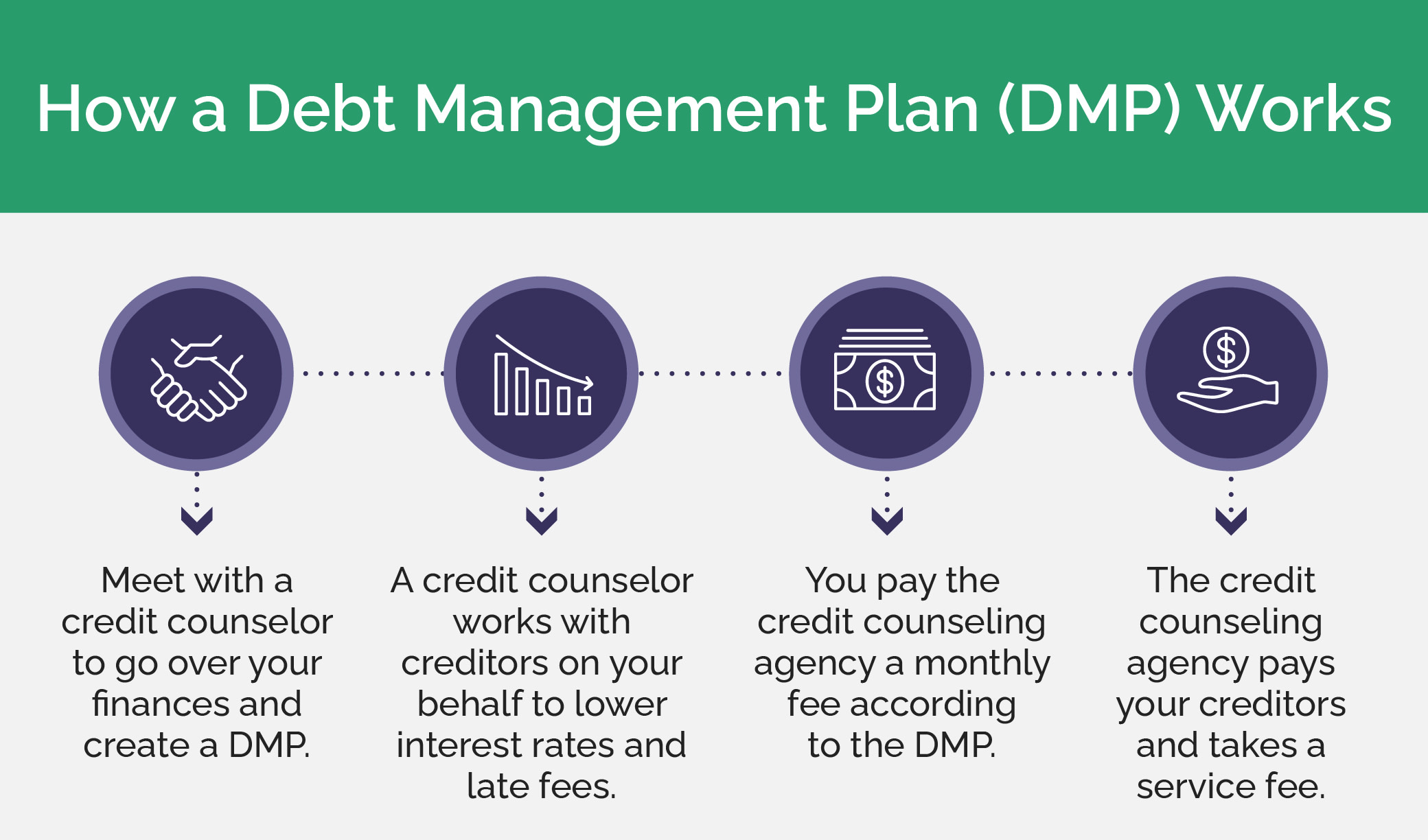Understanding the Duty of Debt Management Plan Services in Financial Planning
Understanding the Duty of Debt Management Plan Services in Financial Planning
Blog Article
Understanding the Significance of a Well-Structured Financial Obligation Monitoring Plan for Financial Stability
As individuals navigate the complexities of handling their economic responsibilities, a critical method to financial obligation monitoring can lead the way for a more thriving and secure future. By understanding the basic concepts and functional approaches behind efficient debt monitoring, individuals can open the course to not just decreasing financial debt problems yet also growing a solid foundation for long-term economic wellness.
The Impact of Financial Obligation on Financial Security

In addition, the effect of debt on financial stability extends beyond just the monetary elements. It can additionally influence mental wellness, relationships, and overall well-being. The anxiety and stress and anxiety related to frustrating financial obligation can hinder decision-making capacities and stress individual and specialist partnerships.
As a result, it is vital for organizations and people to very carefully handle their financial obligation levels, guaranteeing that it lines up with their economic goals and capabilities. By comprehending the effects of financial debt on financial security and carrying out efficient debt management organizations, people and techniques can secure a much more prosperous and steady monetary future.
Elements of an Efficient Financial Debt Monitoring Strategy
Given the essential significance of keeping financial security in the middle of varying financial debt degrees, understanding the vital parts of an effective debt administration strategy is extremely important for companies and individuals alike. An extensive financial debt administration plan commonly consists of a detailed assessment of existing debts, income, and costs to develop a clear financial photo. Setting details and possible monetary objectives is essential in assisting the financial obligation repayment procedure. Focusing on financial obligations based on rates of interest, with a focus on paying off high-interest debts initially, can conserve cash over time. Developing a comprehensive spending plan that designates funds for debt repayment while still covering crucial costs is fundamental. Bargaining with lenders for lower interest rates or modified layaway plan can also become part of an efficient financial debt administration strategy. In addition, developing an emergency fund to avoid accumulating more financial obligation in situation of unanticipated expenditures is a sensible component of a well-shaped financial obligation administration strategy. Routinely changing the plan and keeping track of as needed guarantees its performance in achieving financial security.
Advantages of Executing a Financial Obligation Payment Strategy
.webp)
Tips for Developing a Sustainable Budget
Building a solid economic structure begins with grasping the art of creating a sustainable spending plan that aligns with your lasting financial goals and complements your debt settlement approach. To create a spending plan that advertises economic security, beginning by tracking your revenue and costs to recognize your economic patterns. Categorize your expenditures into essential (such as real estate, utilities, and groceries) and non-essential (like dining out and enjoyment) to focus on where your cash goes. Establish reasonable spending restrictions for every classification, ensuring that your important costs are covered while leaving room for financial savings and financial debt payments.
Furthermore, take into consideration utilizing budgeting tools and apps to simplify the process and keep on your own accountable. Regularly testimonial and change your spending plan as required, particularly when confronted with unexpected expenditures or adjustments in revenue. Bear in mind to allocate a section of your budget plan in the direction of constructing a reserve to cover unforeseen financial challenges. By complying with these tips and staying disciplined in your budgeting strategy, you can develop a lasting economic strategy that supports your long-lasting goals and helps you accomplish long lasting monetary security.
Monitoring and Readjusting Your Financial Debt Management Plan
Frequently evaluating and adjusting your debt administration plan is essential for preserving economic progress and attaining debt payment objectives. Checking your financial obligation management plan entails keeping an eye on your earnings, costs, and financial debt balances to make certain that you are remaining on track with your financial purposes (debt management plan services). By on a regular basis examining your plan, you can recognize any areas official website that might need modification, such discover here as cutting back on unneeded costs or boosting your debt settlements
Readjusting your debt monitoring plan may be required as your economic circumstance progresses. Life adjustments, such as a task loss or unexpected expenses, might need you to reassess your plan and make adjustments to fit these brand-new conditions. In addition, as you pay for your debt, you may locate that you have additional funds available to allot towards financial debt settlement or savings.

Verdict
To conclude, a well-structured debt monitoring plan is vital for preserving financial stability. By comprehending the influence of financial obligation, applying a payment approach, producing a lasting budget, and surveillance and adjusting the strategy as needed, people can take control of their economic circumstance and job in the direction of a debt-free future. It is crucial to focus on financial wellness and make educated decisions to protect a stable and prosperous economic future.
By comprehending the fundamental concepts and practical techniques behind reliable financial obligation management, people can open the path to not only decreasing financial obligation worries however also cultivating a strong structure for lasting financial well-being.
Provided the important significance of preserving monetary security among differing financial debt levels, recognizing the vital elements of a reliable financial debt management strategy is vital for individuals and organizations alike. A thorough financial obligation monitoring plan generally consists of a thorough evaluation of current debts, income, and costs to establish a clear economic photo - debt management plan services.On a regular basis evaluating and adjusting your financial debt monitoring strategy is critical for preserving monetary this page progression and accomplishing financial obligation repayment objectives. Monitoring your financial debt management strategy includes maintaining track of your earnings, expenses, and financial obligation equilibriums to make certain that you are remaining on track with your economic objectives
Report this page